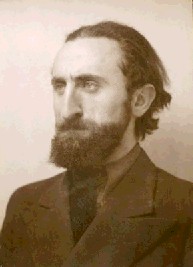Four Counsels that contain All
Most of our contemporaries seem to forget that in true charity God is “served first,” as Joan of Arc used to say: in other words they forget that charity is, in essence, to love God more than ourselves, to love our neighbor as ourselves, thus to love ourselves, but less than God; not to love our neighbor more than ourselves, and not to feel ourselves obliged to give him what, in our opinion, we would not deserve if we were in his place.
Love of God possesses an element of the absolute deriving from the divine Absoluteness, but love for the neighbor — and love for ourselves — although recalling the relationship between man and God, has a relative character deriving from human relativity; the relationship remains similar thanks to the analogy, but the mode changes with the object.
To love God does not mean to cultivate a sentiment — that is to say, something which we enjoy without knowing whether God enjoys it — but rather to eliminate from the soul what prevents God from entering it; or again, it is to realize in ourselves that which, by virtue of the analogical correspondences, is conformable to the divine Presence.
To love one’s neighbor — and it is necessary to love him as an aspect of our love for God and by virtue of God’s love for us — is to place oneself in the other, to abolish the illusory distinction between me and you, just as to love God is at bottom to abolish the separation which makes us remote from Him.
Love for the neighbor indirectly effects the divine Presence in us: when man places himself in the neighbor, God places Himself in man; to abolish what separates us from the neighbor is to abolish what separates us from God.
[Stations of Wisdom, Complexity of the Concept of Charity, p. 93-94, World Wisdom Books, 1995]

